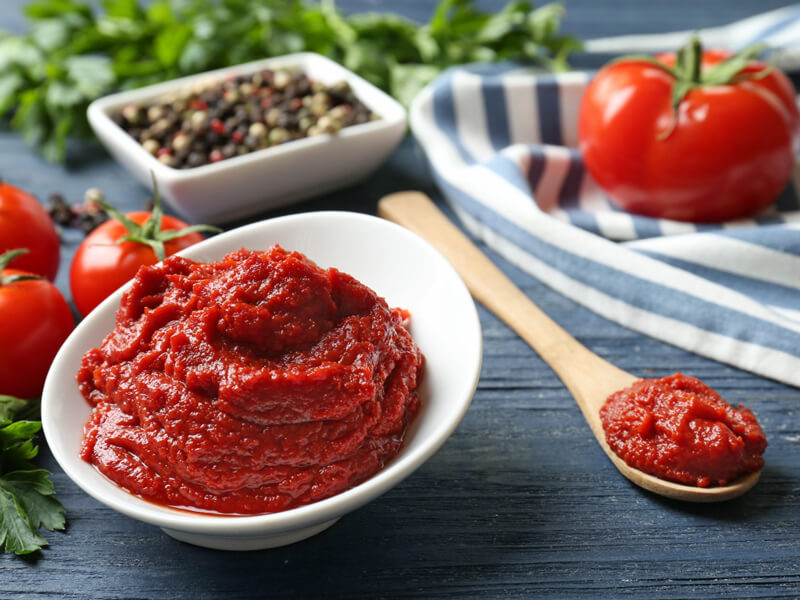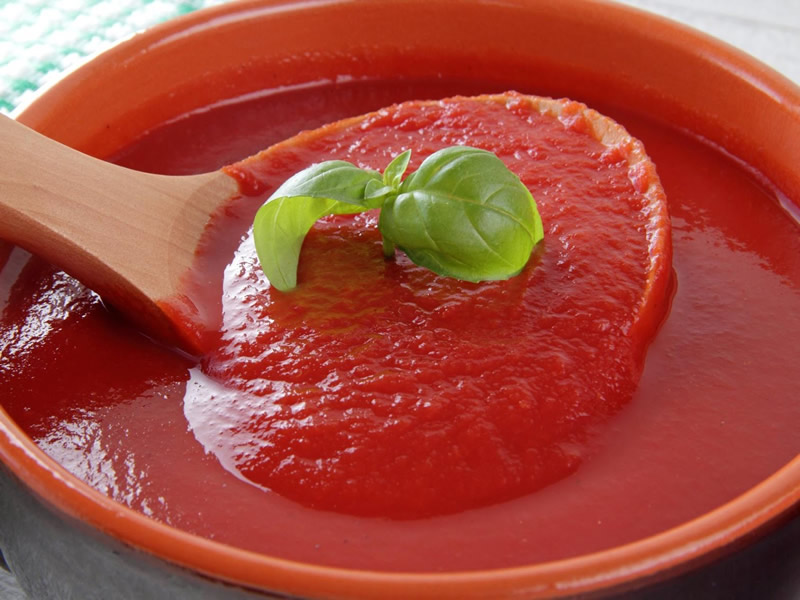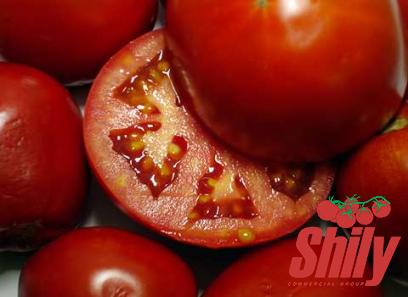A Versatile Condiment for Every Culinary Need
Introduction:
Tomato pasta sauce ketchup is a popular condiment that has become a staple in kitchens worldwide. With its rich, tangy, and flavorful profile, this versatile sauce adds depth and enhances the taste of a variety of dishes. Whether used as a base for pasta sauces, a dipping sauce for fries, or a topping for burgers, tomato pasta sauce ketchup offers a convenient and delicious solution for elevating your cooking. In this article, we will explore the history, uses, benefits, and culinary potential of tomato pasta sauce ketchup.
1. Historical Background:
Tomato pasta sauce ketchup traces its origins back to ancient civilizations. The concept of using tomatoes as a base for a condiment can be traced back to the Aztecs in Central America. However, it was not until the 18th century that tomato ketchup, as we know it today, emerged. The first tomato ketchup recipe was developed by British traders who encountered it in Southeast Asia, where locals used a fermented fish sauce known as “kechap” or “kicap.” These traders adapted the recipe, replacing fish with tomatoes, to create a tomato-based sauce that gained popularity in Europe and the Americas.
2. Production Process:
Tomato pasta sauce ketchup is typically made by cooking down tomatoes, usually blended or crushed, with a combination of vinegar, sugar, salt, and various spices. The ingredients are simmered until they reach the desired consistency, and then the mixture is strained to remove any solids. The resulting sauce is bottled, sealed, and pasteurized to ensure a long shelf life. Some variations of tomato pasta sauce ketchup may also include additional ingredients such as onions, garlic, chili peppers, or herbs, to add further depth and complexity to the flavor.
3. Uses and Culinary Applications:
3.1 Pasta Sauces: Tomato pasta sauce ketchup forms the ideal base for creating a wide array of pasta sauces. Whether you prefer a classic marinara sauce, a rich and meaty Bolognese, or a spicy arrabiata, tomato pasta sauce ketchup provides a convenient shortcut to achieving a flavorful and well-balanced pasta dish. Its natural sweetness and acidity complement a range of ingredients, making it a versatile ingredient in various pasta recipes.

3.2 Dipping Sauce: Tomato pasta sauce ketchup adds a tangy twist to traditional dipping sauces. Its smooth texture and vibrant taste make it an excellent accompaniment for fried snacks, including French fries, chicken nuggets, or onion rings. The combination of sweet, sour, and savory flavors enhances the overall experience of enjoying finger foods.
3.3 Burger and Sandwich Topping: Tomato pasta sauce ketchup is a must-have topping for burgers and sandwiches. Its rich flavor profile cuts through the richness of meats and provides a burst of tanginess. From classic cheeseburgers to gourmet grilled sandwiches, tomato pasta sauce ketchup adds a delightful dimension to these handheld favorites.
3.4 Ingredient in Recipes: Tomato pasta sauce ketchup’s versatility extends beyond its use as a condiment. It can be incorporated as an ingredient in various recipes, such as meatloaf, meatballs, or barbecue sauces. The addition of tomato pasta sauce ketchup enhances the overall flavor and helps bind ingredients together.
4. Nutritional Benefits:
Tomato pasta sauce ketchup offers several nutritional benefits. Tomatoes, the primary ingredient, are packed with vitamins A and C, as well as antioxidants. These contribute to a healthy immune system, improved vision, and protection against cell damage. Additionally, tomatoes are a great source of lycopene, a powerful antioxidant known for its potential role in reducing the risk of certain cancers. However, it is important to note that commercially produced ketchup may contain added sugars and sodium, so it is advisable to check labels for low-sugar or reduced-sodium options.
5. Brand Spotlight:
Several renowned brands around the world have established themselves as leaders in the tomato pasta sauce ketchup market. Brands like Heinz, Hunt’s, and Del Monte have become synonymous with quality and reliability, offering consumers a wide range of options to choose from. Each brand has its unique recipe and production process, allowing for variations in taste, spice levels, and even organic alternatives to cater to specific consumer preferences.
Conclusion:
Tomato pasta sauce ketchup has evolved from a simple condiment to a culinary powerhouse that adds depth, flavor, and convenience to a multitude of dishes. Its versatility and widespread popularity in various cuisines make it an essential ingredient in homes, restaurants, and food establishments worldwide. From its ancient origins to modern-day production methods, tomato pasta sauce ketchup continues to delight taste buds, offering a flavorful addition to countless recipes. So, the next time you reach for a bottle of tomato pasta sauce ketchup, appreciate its rich history and savor the innovation and flavors it brings to your culinary creations.Tomato Pasta Sauce Ketchup: A Versatile Condiment for Every Culinary Need
1. Market Overview:

Tomato pasta sauce ketchup is a multi-billion-dollar industry that continues to grow steadily around the world. The global demand for this condiment can be attributed to its widespread popularity and versatile use in various cuisines. The market is driven by factors such as changing consumer preferences, increasing demand for convenience foods, and a rising trend of home cooking. With the rise of global food chains and the increasing popularity of fast food, the demand for tomato pasta sauce ketchup as a condiment has surged, both in retail and foodservice sectors.
2. Competitive Landscape:
The tomato pasta sauce ketchup market is highly competitive, with several established players and new entrants vying for market share. Key players in the industry include Heinz, Hunt’s, Del Monte, and private label brands. These companies invest in continuous research and development to innovate and introduce new flavors, healthier options, and organic alternatives to cater to evolving consumer preferences. Marketing strategies such as celebrity endorsements, promotional campaigns, and product diversification are commonly employed to gain a competitive edge.
3. Consumer Trends and Preferences:
As consumer preferences continue to evolve, the tomato pasta sauce ketchup market has witnessed several trends that have shaped its landscape. Growing health consciousness has led to a demand for low-sugar or reduced-sodium options, as well as the inclusion of organic ingredients. Moreover, the rise of vegan and gluten-free diets has driven the need for tomato pasta sauce ketchup that meets these dietary requirements. Furthermore, the demand for gourmet and artisanal products has created opportunities for small-scale producers to enter niche markets with unique flavor profiles and high-quality ingredients.
4. Expanded Usage in Ethnic Cuisines:
Tomato pasta sauce ketchup has found its way into various ethnic cuisines, further expanding its market reach. In Asian cuisines, it is often used as a base for stir-fries, fried rice, or as a dipping sauce for spring rolls and dumplings. In South American and Mexican cuisines, ketchup is incorporated into salsas, enchilada sauces, and marinades. The versatility and adaptability of tomato pasta sauce ketchup have made it popular in these cuisines, allowing for a fusion of flavors and the exploration of new culinary experiences.
5. Export Opportunities:
The global popularity of tomato pasta sauce ketchup presents significant export opportunities for producers. Countries known for their tomato production, such as Italy, the United States, and China, have a competitive advantage in terms of sourcing high-quality tomatoes for ketchup production. Exporting to developing countries with a growing urban population and an increasing preference for western-style cuisine can be a lucrative avenue for expansion. Additionally, collaborations with local distributors and customization to suit regional tastes can further enhance market penetration in different geographies.
6. Innovations in Packaging:

Packaging plays a vital role in attracting consumers and preserving the quality of tomato pasta sauce ketchup. In recent years, there have been various innovations in packaging, such as squeeze bottles, easy-to-use flip-top caps, and portion control sachets. These innovations enhance convenience, reduce waste, and cater to consumer preferences for portion-controlled servings. Moreover, environmentally-friendly packaging options, such as recyclable materials and biodegradable containers, are gaining popularity as consumers become more conscious of their ecological footprint.
7. Foodservice Industry Demand:
The foodservice industry is a significant source of demand for tomato pasta sauce ketchup. Restaurants, cafes, and fast food chains utilize large quantities of ketchup as a condiment, ingredient, or base for various sauces. The convenience and consistent quality of commercially produced ketchup make it an ideal choice for these establishments. Furthermore, the increasing focus on customization and flavor variations has led foodservice chains to collaborate with ketchup manufacturers to develop exclusive recipes and signature sauces that enhance their brand identity.
8. Private Label Brands:
Private label brands have gained prominence in the tomato pasta sauce ketchup market as consumers seek affordable alternatives without compromising on quality. Retailers are leveraging their strong distribution networks and the ability to offer competitive pricing to capture a larger market share. Private label brands often differentiate themselves by offering unique flavors, healthier options, or catering to specific dietary requirements. The rise of e-commerce platforms has also provided opportunities for these brands to directly reach consumers and offer a wide range of product selections.
9. Regulatory Challenges:
The tomato pasta sauce ketchup industry is subject to various regulatory challenges, particularly concerning labeling, quality standards, and food safety measures. Governments and regulatory bodies across different regions have implemented guidelines to ensure the safety and accuracy of product information. Compliance with these regulations is crucial for manufacturers to maintain consumer trust and avoid penalties or recalls. Additionally, trade policies and tariffs can impact the import and export of tomato pasta sauce ketchup, requiring industry players to stay abreast of changing regulations and adapt their strategies accordingly.
10. Future Outlook:
The future of the tomato pasta sauce ketchup market looks promising, fueled by the demand for convenience foods, the trend of home cooking, and the rise of global food chains. As consumer preferences continue to evolve, manufacturers will need to innovate and adapt by introducing healthier options, unique flavors, and catering to specific dietary requirements. The market will also witness increased collaboration between ketchup manufacturers and foodservice chains to develop exclusive recipes and meet the growing demand for customization. Furthermore, sustainability will play a crucial role, with demand for eco-friendly packaging and locally sourced ingredients expected to rise.
Conclusion:

Tomato pasta sauce ketchup has evolved into a versatile condiment with a global appeal, enriching the flavor and culinary experience of countless dishes. Its widespread usage in various cuisines, from pasta sauces to ethnic recipes, has cemented its position in kitchens worldwide. As the market continues to grow, manufacturers need to stay ahead of consumer trends, focus on innovation, and embrace sustainable practices to retain their competitive edge. The tomato pasta sauce ketchup market is poised for further expansion, driven by changing lifestyles, evolving dietary preferences, and a continued love for its rich taste and convenience.









